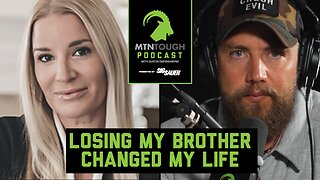Premium Only Content

How to Start Investing with a Small Budget (A Beginner’s Guide)
Investing might seem like a pursuit reserved for those with substantial capital, but it’s entirely possible to start with a small budget. Even modest investments can pave the way for financial growth and stability. The key is to understand the principles of investing, identify the right strategies, and apply them effectively. This guide provides actionable steps and insights to help you begin investing wisely, regardless of the size of your initial budget.
1. Define Your Financial Goals
Before diving into investing, it’s important to establish clear financial goals. Are you looking to save for a short-term objective, like a vacation or a new gadget? Or is your focus on long-term goals, such as retirement or buying a home? Defining your goals will help you choose the appropriate investment strategies and determine how much you need to invest regularly.
Setting specific, measurable, achievable, relevant, and time-bound (SMART) goals can provide direction and motivation. For instance, you might aim to save $5,000 within three years for a down payment on a car. Understanding your objectives will guide your investment choices and help you stay on track.
2. Build an Emergency Fund First
Before you start investing, it’s crucial to have an emergency fund in place. This fund should cover three to six months of living expenses and act as a financial safety net. An emergency fund provides security and ensures you’re not forced to sell investments prematurely in case of unexpected expenses.
To build your emergency fund, start by setting aside a small amount of money each month. Even modest contributions can add up over time. Prioritize building this fund before making significant investments to protect your financial stability.
3. Educate Yourself
Investing can seem daunting, especially with the plethora of options available. Investing in your financial education is a vital first step. Read books, take online courses, and follow reputable financial news sources to familiarize yourself with key concepts like diversification, risk tolerance, and compound interest.
Understanding these principles will enable you to make informed investment decisions. Resources like “The Intelligent Investor” by Benjamin Graham and “Rich Dad Poor Dad” by Robert Kiyosaki are great starting points. Knowledge is a powerful tool that will help you navigate the complexities of investing.
4. Start with Low-Cost Index Funds or ETFs
For those starting with a small budget, low-cost index funds and exchange-traded funds (ETFs) are ideal options. These funds offer diversification by tracking a specific market index, such as the S&P 500, and are generally less risky compared to individual stocks.
Index funds and ETFs have lower fees and require minimal capital to invest. They also provide exposure to a broad range of securities, which helps spread risk. Many brokerage accounts now offer fractional shares, allowing you to invest in high-priced funds without needing to buy a full share.
5. Embrace Dollar-Cost Averaging
Dollar-cost averaging is a strategy where you invest a fixed amount of money at regular intervals, regardless of market conditions. This approach helps reduce the impact of market volatility and lowers the risk of investing a large sum at an inopportune time.
By investing consistently, you buy more shares when prices are low and fewer shares when prices are high. Over time, this can lower your average cost per share and potentially enhance your returns. Dollar-cost averaging is especially useful for small-budget investors who want to gradually build their investment portfolio.
6. Explore Robo-Advisors
Robo-advisors are automated platforms that provide financial planning services with minimal human intervention. They are an excellent option for investors with small budgets due to their low fees and low minimum investment requirements.
Robo-advisors use algorithms to create and manage a diversified portfolio based on your risk tolerance and financial goals. They handle tasks such as rebalancing and reinvesting dividends, which simplifies the investment process and allows you to invest without needing to actively manage your portfolio.
7. Consider Micro-Investing Apps
Micro-investing apps are designed to make investing accessible with small amounts of money. These apps typically round up your everyday purchases to the nearest dollar and invest the spare change. This approach is ideal for those who want to start investing with minimal effort and without a large initial investment.
Micro-investing platforms often offer features such as automatic rebalancing and diversified portfolios. They provide an easy way to begin investing and can help you develop a habit of saving and investing regularly.
8. Invest in Dividend Stocks
Dividend stocks are shares in companies that pay out regular dividends to shareholders. These dividends can provide a steady stream of income and can be reinvested to purchase more shares, potentially compounding your returns over time.
Look for companies with a history of stable and growing dividends. Dividend stocks can be a good option for long-term investors who want to benefit from both capital appreciation and regular income. Many brokerage accounts allow you to purchase shares of dividend-paying stocks with relatively small investments.
9. Be Patient and Consistent
Investing is a long-term endeavor that requires patience and consistency. Avoid making decisions based on short-term market fluctuations or trying to time the market. Instead, focus on sticking to your investment strategy and maintaining a long-term perspective.
Consistency in investing, even with a small budget, can lead to significant financial growth over time. Regularly contributing to your investments and staying committed to your financial goals will help you build wealth and achieve financial security.
10. Monitor and Adjust Your Investment Plan
Regularly reviewing your investment portfolio is crucial to ensure it aligns with your financial goals. As your financial situation evolves or market conditions change, you may need to adjust your investment strategy.
Use financial tools and resources to track your progress and make necessary adjustments. Keeping an eye on your investments will help you stay on track and optimize your portfolio for better performance.
11. Utilize Tax-Advantaged Accounts
Tax-advantaged accounts, such as Individual Retirement Accounts (IRAs) and 401(k)s, can significantly benefit small-budget investors. These accounts offer tax benefits that can enhance your investment returns over time.
Roth IRAs allow you to contribute after-tax dollars, and your investments grow tax-free. When you withdraw funds in retirement, you won’t owe taxes on your earnings. Traditional IRAs, on the other hand, offer tax deductions on contributions, with taxes paid upon withdrawal in retirement. 401(k) plans, often provided by employers, let you contribute pre-tax dollars, which can lower your taxable income and potentially benefit from employer matching contributions.
Starting with these accounts can maximize your investment growth and provide significant tax benefits. Aim to contribute enough to take full advantage of any employer match in a 401(k), and consider opening an IRA if you’re eligible.
12. Explore Real Estate Investment Opportunities
Investing in real estate might seem daunting with a small budget, but there are accessible options. Real Estate Investment Trusts (REITs) allow you to invest in real estate properties or mortgages through shares, much like stocks or ETFs. REITs provide a way to gain exposure to real estate without needing substantial capital for property purchases.
Additionally, some platforms offer real estate crowdfunding opportunities, where you can pool resources with other investors to fund real estate projects. These options can provide diversification and potential returns from the real estate market without the need for a large upfront investment.
13. Leverage Investment Apps and Platforms
The digital age has brought numerous apps and platforms that simplify the investing process. Apps like Robinhood, Acorns, and Stash are designed to make investing more accessible and affordable. These platforms often have low or no minimum investment requirements, and they provide user-friendly interfaces for managing investments.
Many of these apps also offer educational resources and tools to help you understand investing better. Look for apps that offer features like automatic rebalancing, investment recommendations, and low fees to make the most of your small budget.
14. Stay Informed and Adapt
The financial landscape is always changing, so staying informed about market trends and new investment opportunities is essential. Follow financial news, read market analyses, and participate in investment forums to keep up with developments that might affect your investments.
Adapting your investment strategy based on new information and changing circumstances can help you make better decisions and seize emerging opportunities. Regularly reviewing your portfolio and staying informed will help you stay on track and adjust as needed.
Read the full blog post here https://www.gerardyadgg.com/2024/09/how-to-start-investing-with-small_8.html
-
 LIVE
LIVE
Bitcoin Policy Institute
45 minutes agoBitcoin for America
587 watching -
 34:43
34:43
Degenerate Jay
23 hours ago $1.02 earnedAssassin's Creed Was Always Anti-Religion?
6.64K4 -
 6:41
6:41
Silver Dragons
18 hours agoCanadian Silver Maple Leaf Coins - Dealer Reveals Everything You NEED to Know
3.73K2 -
 8:42
8:42
Dangerous Freedom
16 hours ago $0.85 earnedThe M&P Competitor SHREDS—But Did Smith & Wesson Screw It Up?
6.69K2 -
 1:12:50
1:12:50
MTNTOUGH Fitness Lab
16 hours agoSTOP Living in Fear: Why Some People Rise From Tragedy AND OTHERS DON'T | Ryan Manion
4.32K -
 8:03
8:03
Alabama Arsenal
1 day ago $0.34 earnedWoox Bravado | Modern Features Meet Timeless Style
8.11K1 -
 2:49:10
2:49:10
TimcastIRL
13 hours agoElon Musk Says X Hit By MASSIVE Cyberattack From Ukraine, Rumble Hit Too w/Ben Davidson| Timcast IRL
246K132 -
 2:05:10
2:05:10
Kim Iversen
16 hours agoFree Speech for Me, But Not for Thee: Trump Admin’s Protester Crackdown Sounds MAJOR Alarms
94.9K497 -
 1:29:26
1:29:26
Glenn Greenwald
16 hours agoICE Detains Permanent Resident for Protesting Israel; European Leaders Make Maniacal Rearmament Vows They Cannot Keep | SYSTEM UPDATE #421
168K294 -
 1:02:56
1:02:56
Donald Trump Jr.
18 hours agoUSAID Slush Fund Slashed, X Cyberattack, Plus Interview with Nate Morris | Triggered Ep.223
156K198